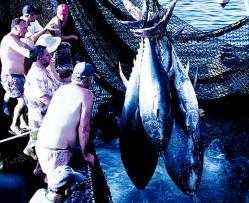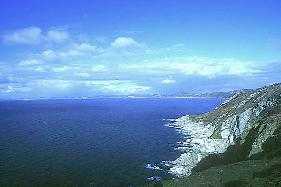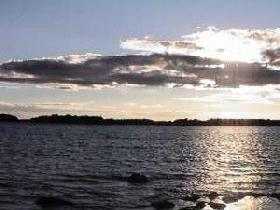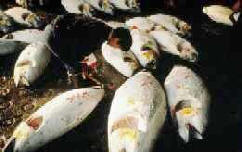|
Within a framework of promoting sustainable use of seas and conserving marine ecosystems, the Commission proposes to halt biodiversity decline by 2010 and reverse declines in fish stocks.
All contamination of the marine environment by hazardous and radioactive substances should be ended, in line with existing goals of the Ospar Convention on Protection of the Northeast Atlantic.
Human induced eutrophication should be eliminated by 2010. Eutrophication, or nutrient pollution, is the process by which humans add excessive amounts of phosphorus, nitrogen, and carbon to waterways that empty into the sea. Runoff from agricultural fields, urban lawns, and golf courses, and untreated, or partially treated, domestic sewage are major sources of excessive nutrients.
Marine litter should be eliminated by 2010, and the overall environmental impacts of shipping reduced through development of a "clean ship" concept. The Commission proposes to end oil pollution from ships and offshore installations by 2020.
Actions proposed to meet these objectives include development by 2005 of a new marine species and habitats protection program, to be integrated into a law known as the EU Habitats Directive.
The objectives of the Water Framework Directive
are to be integrated into EU policies on chemicals
and pesticides to begin moving towards the
Ospar hazardous substances goal.
Anti-eutrophication measures are to include a
comprehensive assessment of the state of marine
eutrophication in 2006 and research to support cuts
In ship emissions of nitrogen oxides.
By 2004 the Commission will review issues relating
to nuclear fuel reprocessing plants, and determine an
y need for EU action.
|



